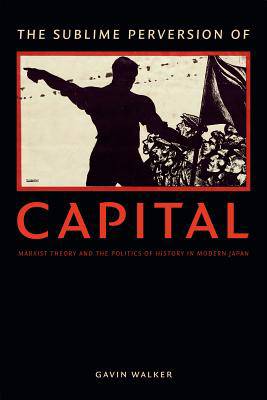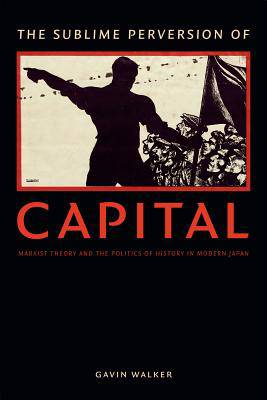
Door een staking bij bpost kan je online bestelling op dit moment iets langer onderweg zijn dan voorzien. Dringend iets nodig? Onze winkels ontvangen jou met open armen!
- Afhalen na 1 uur in een winkel met voorraad
- Gratis thuislevering in België vanaf € 30
- Ruim aanbod met 7 miljoen producten
Door een staking bij bpost kan je online bestelling op dit moment iets langer onderweg zijn dan voorzien. Dringend iets nodig? Onze winkels ontvangen jou met open armen!
- Afhalen na 1 uur in een winkel met voorraad
- Gratis thuislevering in België vanaf € 30
- Ruim aanbod met 7 miljoen producten
Zoeken
The Sublime Perversion of Capital
Marxist Theory and the Politics of History in Modern Japan
Gavin Walker
€ 56,45
+ 112 punten
Uitvoering
Omschrijving
In The Sublime Perversion of Capital Gavin Walker examines the Japanese debate about capitalism between the 1920s and 1950s, using it as a "prehistory" to consider current discussions of uneven development and contemporary topics in Marxist theory and historiography. Walker locates the debate's culmination in the work of Uno Kōzō, whose investigations into the development of capitalism and the commodification of labor power are essential for rethinking the national question in Marxist theory. Walker's analysis of Uno and the Japanese debate strips Marxist historiography of its Eurocentric focus, showing how Marxist thought was globalized from the start. In analyzing the little-heralded tradition of Japanese Marxist theory alongside Marx himself, Walker not only offers new insights into the transition to capitalism, the rise of globalization, and the relation between capital and the formation of the nation-state; he provides new ways to break Marxist theory's impasse with postcolonial studies and critical theory.
Specificaties
Betrokkenen
- Auteur(s):
- Uitgeverij:
Inhoud
- Aantal bladzijden:
- 264
- Taal:
- Engels
- Reeks:
Eigenschappen
- Productcode (EAN):
- 9780822361602
- Verschijningsdatum:
- 25/03/2016
- Uitvoering:
- Paperback
- Formaat:
- Trade paperback (VS)
- Afmetingen:
- 155 mm x 229 mm
- Gewicht:
- 362 g

Alleen bij Standaard Boekhandel
+ 112 punten op je klantenkaart van Standaard Boekhandel
Beoordelingen
We publiceren alleen reviews die voldoen aan de voorwaarden voor reviews. Bekijk onze voorwaarden voor reviews.











